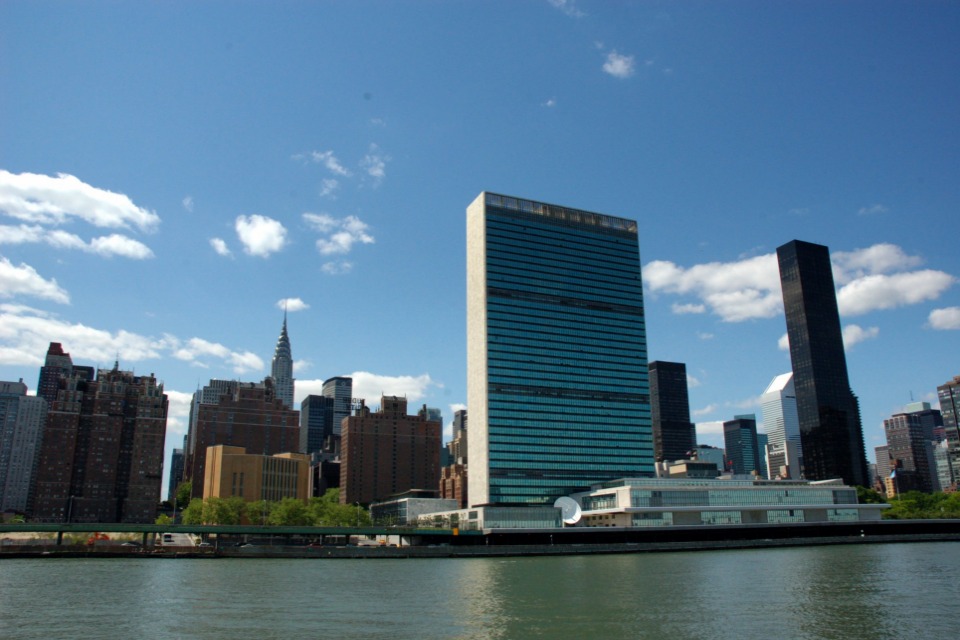Ebola: this is not an African problem, it is a global problem
Statement by Ambassador Peter Wilson of the UK Mission to the UN, to the UN General Assembly briefing on Ebola

We welcome the opportunity to contribute to this timely discussion on the fight against Ebola. As Special Representative Tony Banbury said: “No one can do this alone.”
I was asked to set out what the United Kingdom is doing to help tackle Ebola in Sierra Leone so I will do that as briefly and clearly as I can.
Using British expertise and local building contractors, we have now committed to build six new Ebola Treatment Facilities with a total of 700 beds near urban centres including Port Loko, Freetown and Makeni. This package will help up to nearly 8,800 patients over a 6 month period. In terms of funding, we have committed $180 million so far.
We are setting up an international command and control logistical hub so that staff and materials can get to where they are needed quickly.
We are providing additional laboratory capacity to identify cases.
And we are working with partners to reduce infection rates through:
-
increased support for social mobilisation, which others have mentioned as being critical today,
-
contact tracing,
-
burials and
-
community level care.
In addition, the Prime Minister announced on 8 October that we will deploy 750 military personnel to help build Ebola Treatment Centres and an Ebola Training Academy. This has three key elements:
-
Firstly, we will deploy the deployment of RAF Argus to take 3 Merlin helicopters, aircrew and engineers to the region, and support them once they are there. This will provide crucial transport to medical teams and aid experts. It will involve 250 personnel.
-
Secondly we will deploy over 200 military staff to run a World Health Organisation-led Ebola training facility that will train healthcare workers, logisticians and hygiene specialists. We will help train 90 new healthcare workers every week building up to 1000 in total.
-
And thirdly we will deploy 300 military personnel to focus on delivering support to Sierra Leone’s government.
Once in theatre, these 750 military personnel will be our biggest current military bilateral deployment overseas.
The United Kingdom has also been mobilising international support to tackle Ebola in Sierra Leone. Our Defeating Ebola Conference held in London on 2 October brought together more than 20 governments, a dozen charities and NGOs, the United Nations, World Bank, health experts and the private sector to pledge funds, equipment and health workers. Pledges were received from across the world including Cuba, the Philippines, Australia, and Canada. We are committed to working with others in Sierra Leone, and are very grateful for these rapid offers of help.
While we are focussing our own effort on Sierra Leone, we also hugely support the massive efforts by the United States in Liberia and by the work France is doing in Guinea. Defeating Ebola in one country will not stop its spread: this disease does not respect borders. We call on other partners to step up their efforts. This is not an African problem, it is a global problem and it requires a global response.
We have been engaging with SRSG Tony Banbury and UNMEER staff during their visit to the region and stand ready to offer further support to UNMEER as it establishes itself. As the international community engages on the immediate issues, we must also think ahead, to the longer term humanitarian and economic impact.
Finally, we strongly support the United Nations Ebola Response Trust Fund set up by the Secretary General, calling for a total of $1bn in donations. Every month, the cost and effort required to tackle this disease will double. We cannot afford to wait even until next week, let alone until next month. The United Kingdom is doing what it can, but it is not nearly enough. We all need to act and we need to act now.